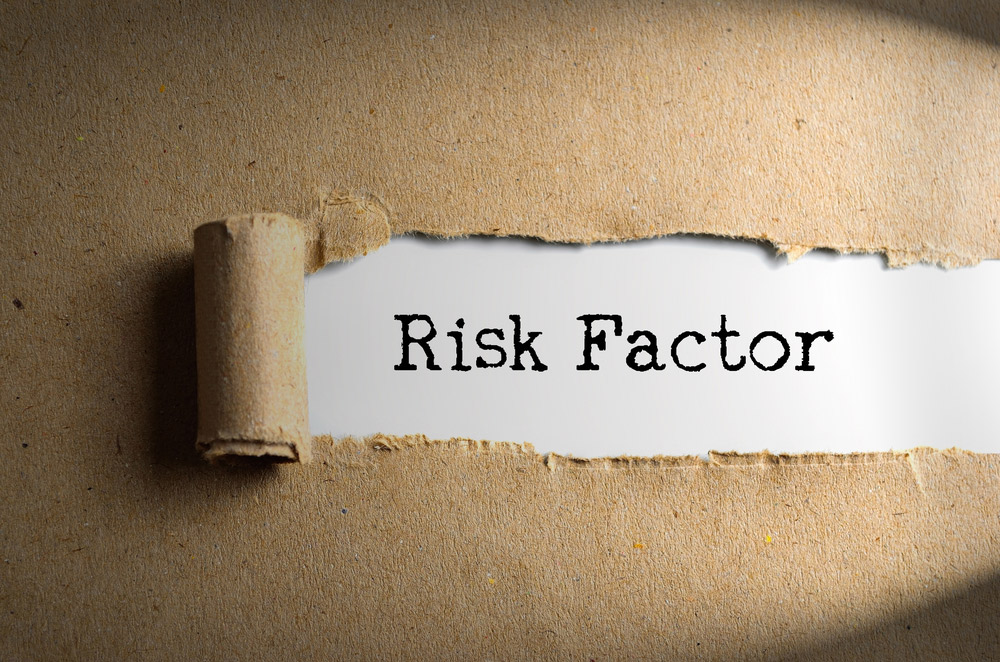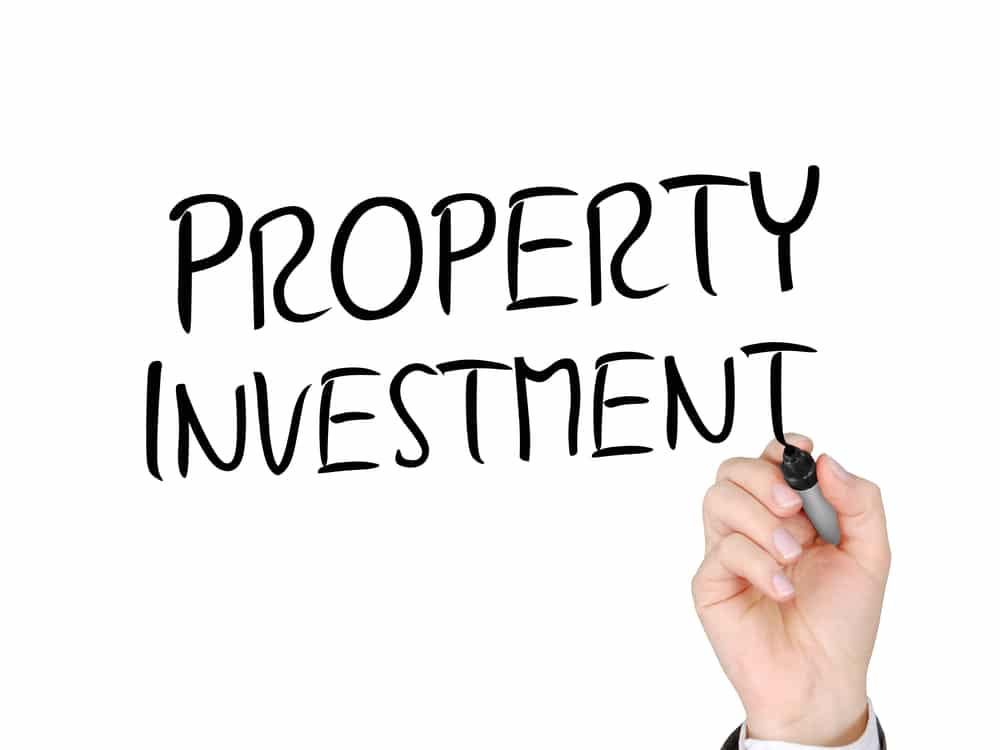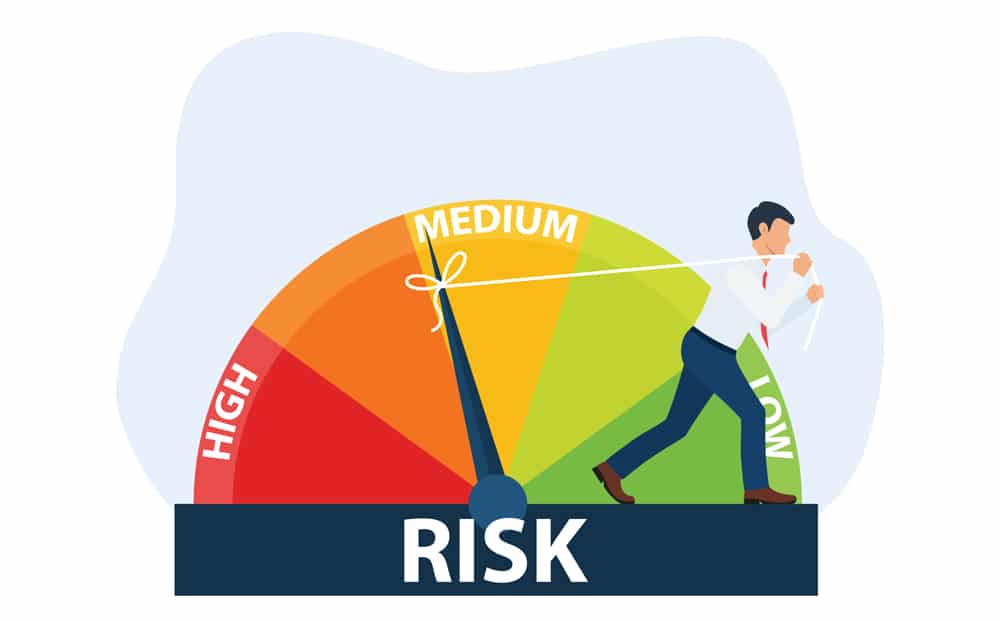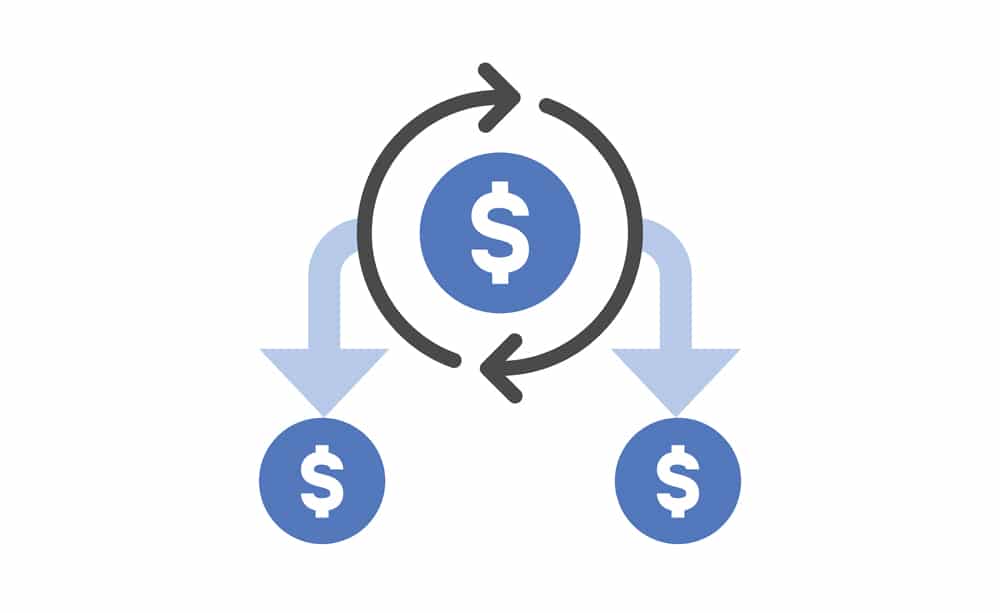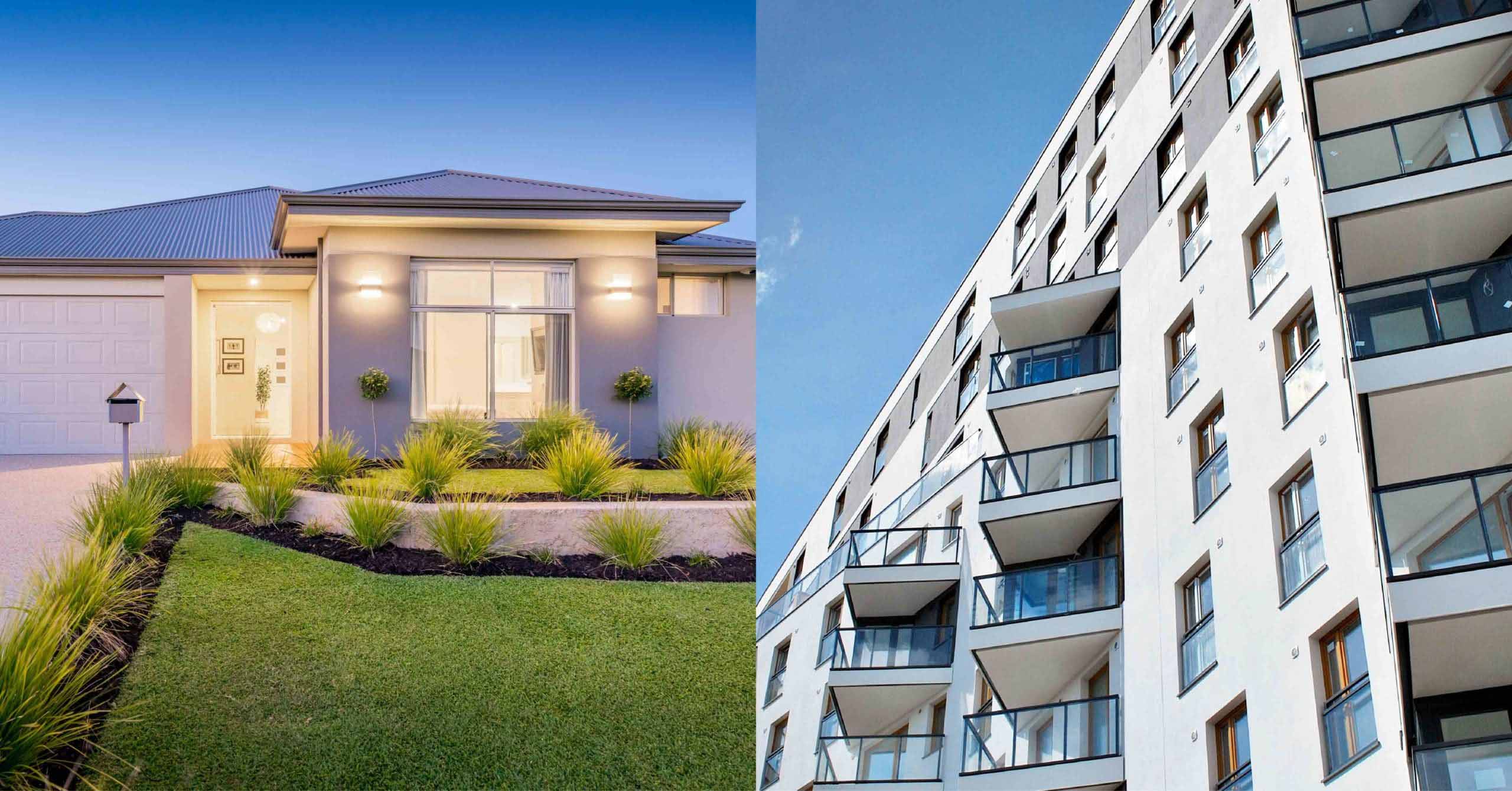
What Is The Best Type Of Property Investment?
When it comes to real estate, there is a lot to learn about property investment and one of the first things you’ll need to determine is what property type/ or types will be best for your portfolio. When you strive to learn everything you can about investing in property, you increase your chances of creating generational wealth!
The best type of property to invest in is dependent on a number of factors about the investor and their real estate strategy.
Different property types will deliver different results and what may work for some investors, will be completely off the mark for others.
To ensure you’re across the best type of property investment for you and that you’re ready to invest, here are some things to consider:
YOU’RE PERSONAL RISK PROFILE
When it comes to property investment, the amount of risk you’re comfortable with is a crucial factor. Essentially, it will come down to how willing you are to expose yourself to loss, and how you will adapt when things go wrong. Additionally, there are always ways to manage risk in real estate.
There are a few different risk profiles that investors generally identify with:
- Conservative
Investors with conservative risk profiles have a low appetite for risk and as such are more likely to take a conservative approach and invest in low-risk options that are more protected from financial loss.
- Balanced
Investors with balanced risk profiles have a more moderate appetite for risk and are likely to invest in real estate that will steadily appreciate over a long time. They may also adopt a balanced strategy where they own multiple properties that balance each other out.
- Aggressive
These investors have a high appetite for risk and are generally focused on achieving maximum returns from their investment. They are typically interested in growing a profit at a faster rate, focusing on high growth and value add strategies.
Generally, there are three main ways that investors may handle risks, based on their own risk profile. This includes risk avoidance (completely avoiding a clear risk and therefore eliminating it), risk control (controlling a risk by having the proper precautions in place from the start) and risk transfer (transferring potential risks, usually with the use of contracts or insurance).
YOUR FINANCIAL CAPACITY
Your financial capacity refers to your ability to build wealth and create success through investment decisions by using your own resources (education and savings). It can depend on a range of factors, including your ability to save, your own research on investing, your financial and personal goals and how you plan to achieve them.
There are three key wealth creation principles that will help you understand if property investment is a good fit for you:
- Understand your money ‘buckets’
Money buckets are how you grow your wealth. Most people only have one bucket where they’ll put all their wages and nothing else. But, investors know that this isn’t enough to create financial freedom or success.
Therefore, it’s smart to have other buckets being filled at the same time. These come in the form of other assets or strategies that work alongside our wages to help build that wealth, whether that’s shares, side hustles, or real estate.
- Know your budget
Calculating how much is coming in and out of your bank account(s) every week, month or year is important when defining your financial capacity. Doing this will help you see how much you need to save, how much you can spend and how much you’ll have left over when it comes to building your investing strategy.
It will also help you narrow down your options for an investment property and may even show you what you’ll need to retire comfortably (or lavishly).
- Learn what grows your wealth vehicle
Property investment is great for creating wealth. Real estate has always had incredibly reliable returns, and being a physical asset, it will always be around in society.
But what drives the growth in real estate? There are six common market drivers that help push up values:
- Population growth
- Infrastructure growth
- Supply vs demand
- Economics
- Demographics
- Yield
Each of these will influence property growth. For example, if you can find population growth in an area where infrastructure is improving and expanding, where you know that people are going to want to live, then that’s a good place to invest.
YOUR LOCATION STRATEGY
The significance of location is simple – you can do what you want with your real estate, but you can never change the area it’s in.
Knowing what drives growth in property investment (like the factors mentioned above), and what will therefore influence your wealth, must be taken into account when defining your location strategy.
A lot of quality real estate gets overlooked because investors have preconceived ideas about certain locations, but remember it’s not about buying property for yourself to live in, rather property that’s going to attract the right tenants.
In summary, look for a location where you are going to get a good rental income, and ideally in a capital growth area.
WHAT TYPE OF PROPERTY IS BEST FOR AN INVESTMENT?
Established houses
Investing in houses offers the prospect of capital growth to increase your wealth, rather than through rental returns. Choosing an established house as your property investment will allow you a less stressful process, in comparison to building a house. You may also be able to rent out an established house immediately, allowing you to earn a rental return from day one, which is desirable for a lot of investors.
Investing in established houses – benefits vs. disadvantages
Benefits
Investing in houses offers the opportunity to increase your capital growth through strategic improvements, such as through subdivisions or renovations (renovations on an investment property are tax deductible too!)
Disadvantages
Typically, a large share of a house’s value is tied up in the land. This means that often, the rental yield won’t reflect that value. Maintenance costs can also be high in houses because you’re responsible for the entire structure and landscape.
As low-maintenance properties can sometimes be difficult to obtain, investing in existing properties can mean repairs and maintenance which, although tax deductible, can be expensive.
What type of investor should buy an established house?
Purchased at the right time of the market cycle and in the right location, investing in established houses is a good strategy for people in the early and middle stages of their investing journeys.
If you buy when the market cycle is at its lowest, then hold, you’ll gain the most benefit. As rents grow, and as your debt is reduced, your investment will soon begin to pay for itself. Until such time, you’ll gain tax benefits either through a cash neutral or tax negative position.
Apartments
As investment properties, apartments can sometimes be more affordable and better value than houses. They can produce higher rental yields than houses and this is always good news if you are on a tight budget when buying.
While investing in houses offers great capital growth, apartments in good locations can provide the capital you’ll need to build up your investment property portfolio when you’re just getting started.
Investing in apartments – benefits vs. disadvantages
Benefits
As stated above, investing in apartments can produce higher rental yields than investing in established houses. They may also have lower council rates, maintenance requirements and are very desirable to younger tenants looking for certain lifestyles and living locations.
If you are striving to be cash-flow positive in your investments, apartments may be one of the best types of property investments for you.
Disadvantages
There is no perfect investment for any one person, and apartments are no exception to the rule. The building’s value may rise in the future, but the land value won’t necessarily follow. The building and all of the improvements that go with it is where the value lies.
You will also have to pay body corporate fees and strata levies.These costs are non-negotiable and go towards maintaining any common areas. You will also be limited on the amount and type of renovations you can do to this type of property due to strata laws.
Additionally, if you buy in the wrong location where the market is oversupplied with apartments you’ll also experience both limited capital growth and rental yields, so it’s important to choose apartments based on demand, desirability and supply.
What type of investor should buy an apartment?
Investors who are further along in their property investing journey and those nearing retirement would do well to buy apartments as they can be a good income source and are fairly low-maintenance.
Villas and townhouses
For those that are stuck between wanting to invest in a house and an apartment, a villa or townhouse can be a good ‘in-between’ option.
They are usually desired by those wanting the space and privacy of a house but lacking the budget for one. Villas and townhouses are generally quite spacious and are statistically cheaper than houses.
If purchased in a highly desirable location, this type of property can deliver both capital growth and a relatively high yield.
Investing in villas/townhouses – benefits vs. disadvantages
Benefits
Townhouses usually offer more space and privacy than apartments, usually with at least two storeys and sometimes a small, fenced in front or backyard. This means they can be very desirable and in high demand for many different types of people (couples, small families, people with pets looking to downsize, etc.)
Townhouses can deliver capital growth that rivals houses and rental yields similar to apartments. They also offer the potential to renovate, provided the by-laws allow it, which can increase both your property’s value and your rents.
Disadvantages
Like apartments, villas/townhouses can require extra costs like body corporate and strata fees. On top of this, while you own the dwelling, you still share the land with the other owners.
Additionally, over time, a property can become outdated. If the by-laws are too restrictive this can impact an investor’s ability to update a property either through renovation or even as far as demolition. Also, a group of villas or townhouses might face competition from similar properties, offering investment property owners little opportunity to make their property stand out amongst the crowd.
What type of investor should buy a villa/townhouse?
This property style offers individuals who are in the beginning stages of growing their investment property portfolios a lower price point than houses. Also, the capital growth prospects provide access to leverage that can help them continue to grow their wealth.
In investing, “leveraging” simply means borrowing money to finance another investment that will allow you to increase the return on investment. For example, when your investment property value increases and delivers you more equity, you can leverage this equity to purchase another property, and therefore build your investment portfolio.
Although investors can be reluctant to borrow money, as they see it as a big risk, leveraging often allows you to purchase more property than you could otherwise afford.
WHAT IS THE BEST TYPE OF PROPERTY TO INVEST IN?
As you can see, the best type of property investment depends on the investor, what stage of life they’re in and what they value. Don’t forget that the best type of property for an investment will change from investor to investor.
Whether a great investment is good value will also boil down to its location, amenities, size, and the current condition of the property. Your strategy, portfolio goals, and financial circumstances will also play a part in the success of your investment property, so it pays to understand your personal situation and the property itself.
Remember that the right property type for you depends upon a number of factors; your financial situation, how long you’ve been a property investor, the state of your current investment property portfolio, when you expect to retire, your capacity for risk and much more.
If you’ve been searching the markets but still aren’t sure where or what to buy, it’s best to consult with a professional property advisor. Our team at Positive Real Estate have almost 20 years’ worth of experience and knowledge. If you’re ready to connect with property experts that can guide you along your investing journey, then check out our free property investor webinar for all the help you need to find the best type of property investment for you!
Recent Articles
How Lenders Assess Valuation Risk Factors When Financing
Ever thought you’d picked an absolute winner of a property only for the bank to come back with a list of valuation risk factors? It’s more common than you think, particularly in a rising market where values fluctuate so much that our ideas of what a property is worth actually start to disconnect from what a valuer sees.
Tips For Buying An Investment Property
Have you decided to take the property investment journey but are feeling clueless as to how to actually board the train? We’re going to give you our top five tips for buying an investment property in 2022 to help point you in the right direction!
Is Property Investment a Good Investment Asset for You?
Why is property investment a good investment? Why not invest in shares or bonds instead? Which investment is the most secure? If you’ve come to a crossroads in your life where you’re ready to start building your wealth but questions like these are bouncing around your head, then it’s time to sit down and start your education on investing.
Buying an Investment Property Before a First Home in Australia?
Owning property has always been part of the great Australian dream. A lot of people want a place to call their own, with stone benchtops, the latest appliances and a great entertaining deck out back. So, when interest rates hit a record low in the last couple of years and it suddenly started to cost the same to own as it does to rent, why wouldn’t you have just bit the bullet and bought your own home?
The Ins and Outs of Real Estate Risk Management
If you’re new to property investing, what is your risk profile and how do you plan to handle it? Real estate risk management is essential to quashing those all-encompassing fears that can follow investing…
Positive Cash Flow Property – Ultimate Guide 2023
If you want to become a superstar property investor and be on the path to financial freedom, then you’re going to need this guide to investing in positive cash flow properties! Investors that follow a positive cash flow strategy understand that living off passive income is the key to an early retirement – and the only way to do that is to make our money work for us, not against us.
House Vs Apartment Investment – Which Is Better?
These days property comes in all shapes and sizes, giving property investors more options than ever before. The question on everyone’s lips when it comes to the house vs apartment investment equation, is how do you truly know which is better?
The All Monies Mortgage Clause – What You Need To Know!
This article is about the all monies mortgage clause and how it can potentially affect your property investment. When you signed your bank loan agreement to secure funds for a mortgage, did your contract contain an all monies mortgage clause?
How You Can Be 3-7 Years Away From A Multi-Million Dollar Property Portfolio
Using real estate to become a successful property investor is underpinned by one very important philosophy – profits are better than wages. The goal of property investors in the market is to target optimistic returns. However, this does beg the question – if property investing is such a smart and lucrative profit making machine then why don’t more people do it?




